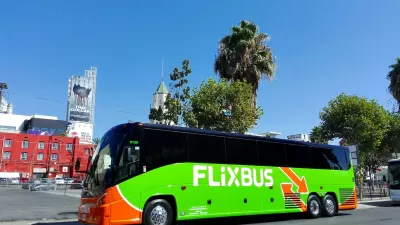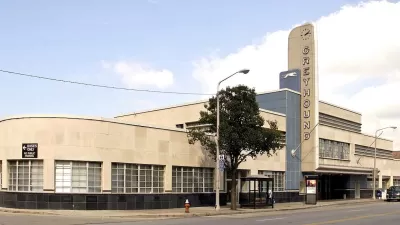As the loss of intercity bus services and stations continues, Chicago could become the largest city in the developed world without a major downtown bus terminal.

Intercity bus passengers in Chicago worry they could literally be left out in the cold just as the busy holiday season approaches, reports David Schaper for NPR, if the downtown Chicago bus terminal, the largest intercity bus connection hub in the Midwest, shuts down.
Bus companies have been slashing intercity bus service and shuttering terminals around the country, forcing passengers to wait outdoors on sidewalks or in poorly lit parking lots with no access to restrooms, ticket agents, or other amenities.
FlixBus, Greyhound’s new owner, secured a temporary, month-to-month lease on the terminal, but the company has declined to estimate how long the lease might last.
Director of DePaul University’s Chaddick Institute Joe Schwieterman stressed the importance of intercity bus service, saying, “You take away connecting points or push people out on the curb to wait, and that whole network just unravels. So it's hugely important for mobility, heavily for people with low incomes, disabled community and many others.”
According to the article, “City officials are in talks with Greyhound and other entities to try to find another location with an indoor waiting area, but there's been little progress thus far.” The CEO of Flix North America is calling on Congress to support intercity bus service by funding bus infrastructure in the same way it funds airports, passenger rail, and other public transit.
FULL STORY: Chicago may become the latest city to lose Greyhound bus services

Alabama: Trump Terminates Settlements for Black Communities Harmed By Raw Sewage
Trump deemed the landmark civil rights agreement “illegal DEI and environmental justice policy.”

Study: Maui’s Plan to Convert Vacation Rentals to Long-Term Housing Could Cause Nearly $1 Billion Economic Loss
The plan would reduce visitor accommodation by 25% resulting in 1,900 jobs lost.

Planetizen Federal Action Tracker
A weekly monitor of how Trump’s orders and actions are impacting planners and planning in America.

Waymo Gets Permission to Map SF’s Market Street
If allowed to operate on the traffic-restricted street, Waymo’s autonomous taxis would have a leg up over ride-hailing competitors — and counter the city’s efforts to grow bike and pedestrian on the thoroughfare.

Parklet Symposium Highlights the Success of Shared Spaces
Parklets got a boost during the Covid-19 pandemic, when the concept was translated to outdoor dining programs that offered restaurants a lifeline during the shutdown.

Federal Homelessness Agency Places Entire Staff on Leave
The U.S. Interagency Council on Homelessness is the only federal agency dedicated to preventing and ending homelessness.
Urban Design for Planners 1: Software Tools
This six-course series explores essential urban design concepts using open source software and equips planners with the tools they need to participate fully in the urban design process.
Planning for Universal Design
Learn the tools for implementing Universal Design in planning regulations.
Caltrans
Smith Gee Studio
Institute for Housing and Urban Development Studies (IHS)
City of Grandview
Harvard GSD Executive Education
Toledo-Lucas County Plan Commissions
Salt Lake City
NYU Wagner Graduate School of Public Service





























